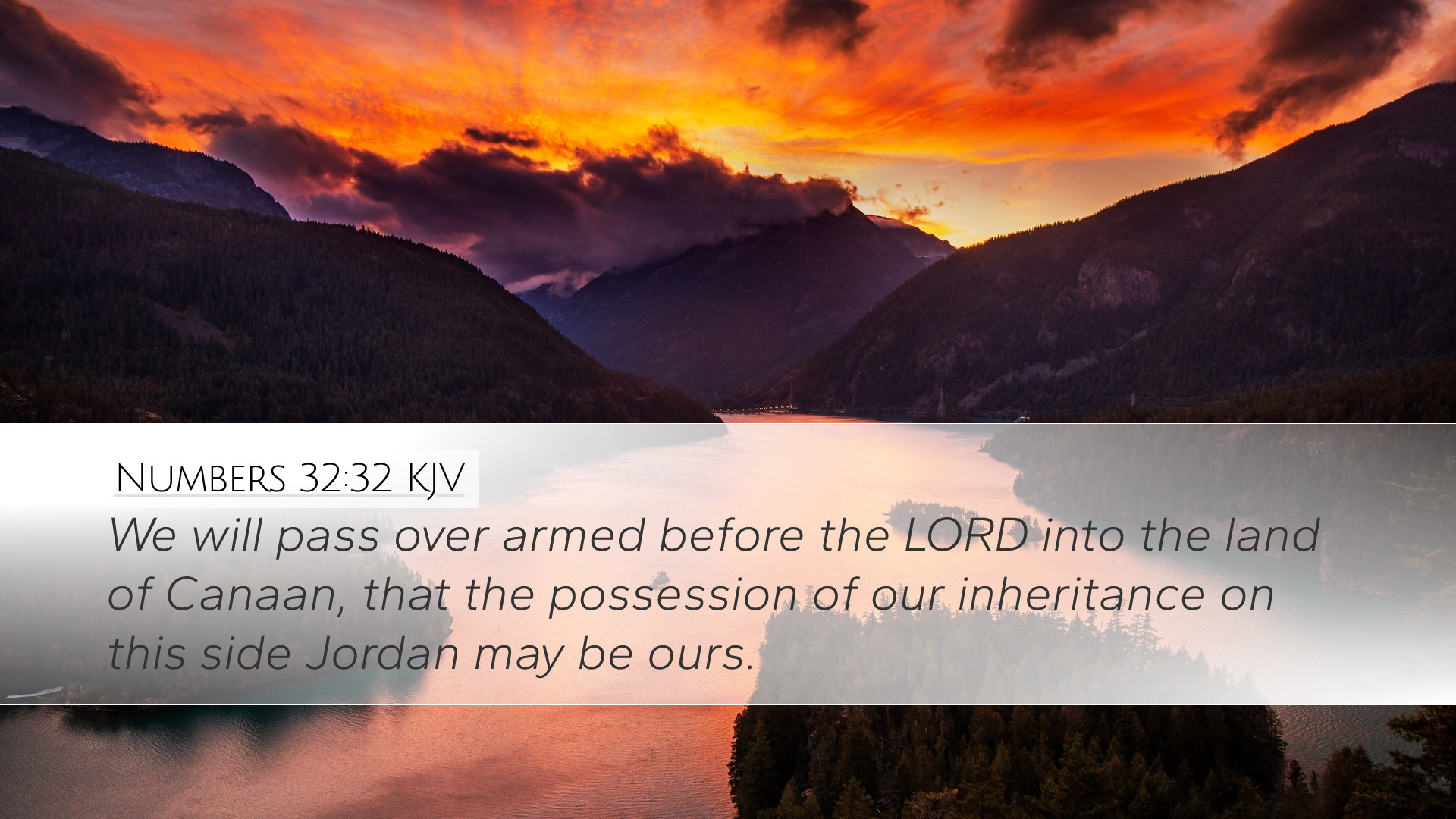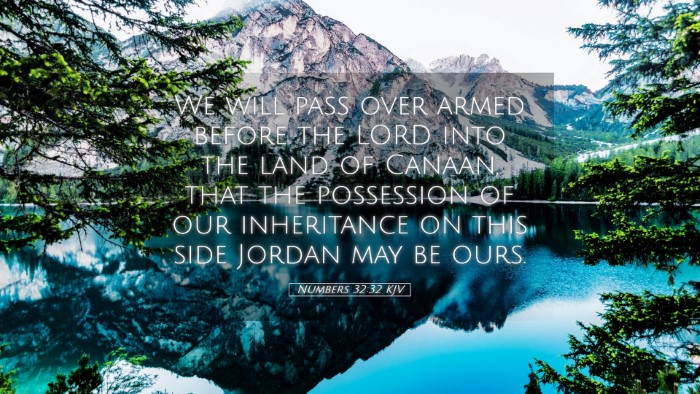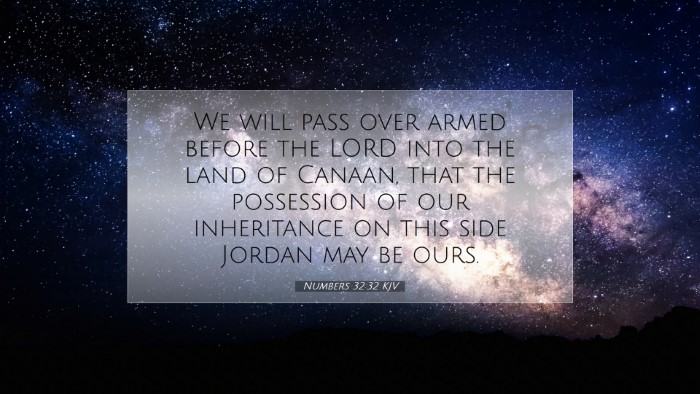Commentary on Numbers 32:32
Verse Text: "We will pass over armed before the LORD into the land of Canaan, and the possession of our inheritance shall remain with us on this side Jordan."
Introduction
This verse encapsulates a significant moment in the history of Israel, where the tribes of Reuben, Gad, and the half-tribe of Manasseh express their commitment to support the Israelites in the conquest of Canaan while negotiating their inheritance on the east side of the Jordan River. Various commentators provide insights into the implications of this decision.
Contextual Background
Numbers 32 appears amidst the Israelites’ journey to the Promised Land. After decades of wandering in the wilderness, they reached the eastern banks of the Jordan River. The requested territories by the Reubenites and Gadites raised questions about loyalty, community responsibility, and divine promise.
Historical and Geographical Context
Understanding the geographical context helps clarify the tribes' motives. The land east of the Jordan was fertile and appealing for livestock, aligning with the pastoral lifestyle of these tribes.
Theological Implications
This situation explores themes of faithfulness to God’s promises and the responsibilities of communal and individual faith. The tribe's willingness to engage in the fight for holiness and inheritance highlights a commitment to a greater purpose.
Interpretative Insights from Commentaries
Matthew Henry
Henry emphasizes the importance of the agreement made by Reuben and Gad, focusing on their promise to fight for the inheritance of their brethren. He notes:
- Commitment in Warfare: Their willingness to cross the Jordan and engage in battle illustrates a commendable readiness to support the collective destiny of Israel.
- Faith and Obedience: The act of passing over armed before the LORD signifies their faithfulness not just to their tribe but to God’s covenant, demonstrating that personal interests should not supersede divine commands.
Albert Barnes
Barnes provides a critical examination of the motivations behind the request made by these tribes and highlights specific points:
- Self-Interest versus Community Interest: Barnes highlights the tension in their request, showing that while they sought comfort and ease, they were not abandoning their obligations.
- Leadership and Responsibility: He points out that their leadership in the battle would reinforce their commitment to God and their brethren, suggesting that spiritual leadership involves tangible acts of support.
Adam Clarke
In his commentary, Clarke delves into the legal and spiritual considerations of the passage. He articulates:
- God’s Promise and Inheritance: Clarke reminds that the inheritance is a divine gift, and yet the tribes seemed to prioritize temporal benefits. He calls attention to the necessity of acknowledging God’s ultimate authority in the division of lands.
- The Nature of True Commitment: His reflections serve to encourage deeper consideration about what true commitment to God’s will entails, emphasizing that willingness to fight for others is indicative of a faithful servant.
Applications for Today
This passage holds profound implications for modern-day faith communities, pastoral responsibilities, and individual believers:
1. Prioritizing Community over Individual Gain
The request of the Reubenites and Gadites challenges contemporary believers to consider how their decisions impact the wider community of faith. Are we prioritizing personal comfort, or are we willing to engage in the struggles of our communities?
2. Understanding the Call to Warfare
Spiritual battles are a reality for believers today. Every Christian is called not only to their personal inheritance but also to actively participate in the spiritual battles that affect the collective body of Christ.
3. Faithfulness to God’s Promises
As the tribes promised to engage in the battle, believers must also recognize the importance of holding fast to God’s promises, understanding that true blessings often require active participation in God’s plan.
4. Leadership in Faith
Pastors and church leaders should reflect upon the example of the tribes’ leaders who committed to the call before engaging in inheritances. Leadership involves sacrifice, and responsibility towards God’s people.
Conclusion
Numbers 32:32 serves as a powerful reminder of the balance between personal and communal faith responsibilities. The insights drawn from public domain commentaries lead us to a deeper understanding of commitment, community, and the intricate nature of our walk with God. As believers today engage with this text, may we be inspired to actively participate in both individual and collective journeys of faith.


